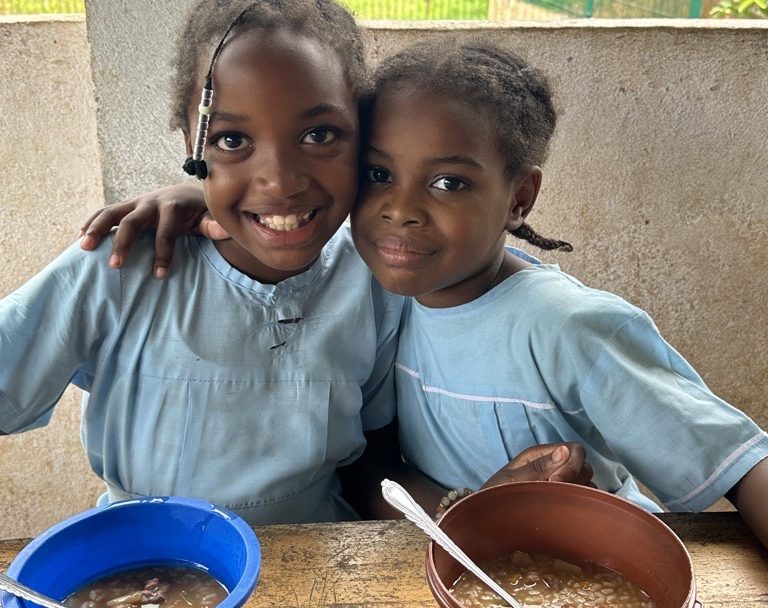
Brazilian nutritionists will be in São Tomé and Príncipe to promote nutrition training for school meals between 29 September and 7 October. The training aims to qualify 15 professionals from the National School Food and Health Programme (PNASE), expanding their capacity to plan menus, monitor nutritional indicators and integrate local food production into school meals.
The training was organised by the WFP Centre of Excellence against Hunger in Brazil, in partnership with the National Fund for Education Development (FNDE) and the Brazilian Cooperation Agency (ABC).
The initiative responds to a demand identified during the São Tomé delegation’s visit to Brazil in 2024, when education officials learned first-hand about the functioning of the National School Feeding Programme (PNAE), an international benchmark managed by the Brazilian government.
Over two weeks of in-person activities in 2025, Brazilian nutritionists and WFP experts will conduct theoretical classes, practical workshops and technical visits to schools and family farms. The aim is to provide simple and effective tools that can be applied to the local context, ensuring healthy, nutritious and sustainable school meals for thousands of children in the country.
In addition to the face-to-face phase, the project includes preparatory and remote monitoring stages, ensuring continuous technical support until July 2025. This methodology seeks not only to transfer knowledge, but also to create nutritional monitoring strategies that can be permanently incorporated by PNASE.
Sineide Neres, nutritionist at the WFP Centre of Excellence against Hunger in Brazil, highlighted the importance of working together with São Tomé and Príncipe. “Training nutrition professionals is essential to ensure that the right to food translates into quality meals. Together with the essential work of school cooks, these professionals help ensure that every child receives healthy and nutritious food every day,” she said.
For Daniel Balaban, director of the Centre of Excellence, the mission reinforces Brazil’s vocation to share its public policies with other countries. “The PNAE is recognised by the UN as an international model. Through South-South cooperation, Brazil contributes to further advancing experiences such as that of São Tomé and Príncipe, strengthening both education and food and nutrition security,” he said.




